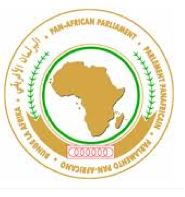 1 March 2016: A workshop on ‘Strengthening women’s rights to land access: a parliamentarian response to close the gender gap for economic development through agriculture,’ aimed to assess progress in implementing the Maputo Protocol to the African Charter on Human and People’s Rights on the Rights of Women in Africa, and to strengthen parliamentarians’ capacity to advocate for women’s land rights.
1 March 2016: A workshop on ‘Strengthening women’s rights to land access: a parliamentarian response to close the gender gap for economic development through agriculture,’ aimed to assess progress in implementing the Maputo Protocol to the African Charter on Human and People’s Rights on the Rights of Women in Africa, and to strengthen parliamentarians’ capacity to advocate for women’s land rights.
The workshop took place on 1 March, on the sidelines of the Committee Sittings of the Pan African Parliament (PAP), which was held from 29 February to 6 March 2016, in Johannesburg, South Africa.
The workshop was co-hosted by the PAP Committee on Rural Economy, Agriculture, Natural Resources, and the Committee on Gender, Family, Youth and People with Disabilities, with technical support from the Land Policy Initiative (LPI) − a joint programme of the tripartite consortium consisting of the African Union Commission (AUC), the African Development Bank (AfDB), and UN Economic Commission for Africa (ECA).
The discussions noted that to date, 43 countries have signed the Maputo Protocol, which entered into force in 2005, while 21 countries, known as State Parties, have formally ratified the Protocol. The discussions highlighted Gambia and Mozambique as examples of State Parties that have made notable progress in this regard, and enumerated challenges faced by countries that are yet to ratify or embark on implementation of the Protocol. The workshop also paid attention to strategies to achieve the target of 30% of documented lands allocated to women by 2025, which was adopted by the African Union (AU) in October 2015.
During substantive discussion sessions facilitated by the LPI, participants addressed the topics of ‘Land access as women’s rights,’ and ‘Tools to domesticate articles 15, 19 and 21 of the Maputo Declaration on Agriculture and Food Security into national law: Oversight and report back mechanisms for the implementation of women’s rights.’ Participants called for parliamentarians to play a more effective role in strengthening women’s land rights through the implementation of land legislation at the national level. In an action plan issued at the close of the meeting, parliamentarians identified the need for capacity building, advocacy, and resource mobilization strategies to strengthen PAP oversight and monitoring of the Maputo Protocol.
The workshop was organized as part of a two-year partnership between the LPI and the Pan African Parliament, which falls under LPI’s overall mandate of facilitating the implementation of the AU Declaration on Land Issues and Challenges in Africa.
The Pan African Parliament was inaugurated in March 2004 in Addis Ababa, Ethiopia, and is currently headquartered in Midrand, South Africa. The PAP comprises 235 representatives, with each AU Member State nominating five parliamentarians, at least one of whom must be a woman. The PAP is structured around ten Permanent Committees, corresponding to the Specialized Technical Committees of the AU, as well as one ad hoc Committee. In addition to meeting during the PAP sessions, each Committee holds two statutory meetings each year. While it currently functions as a consultative and advisory body to the AU, the PAP aims to evolve into an institution with full legislative powers, with members being elected by universal adult suffrage, once a new AU protocol granting these powers has been ratified by Member States. [Pan African Parliament Press Release] [Economic Commission for Africa Press Release] [The Pan African Parliament] [The Land Policy Initiative]